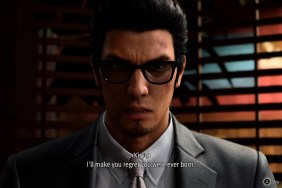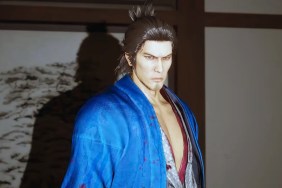The JRPG, Recoded.
It’s been kind of a rough year for JRPGs. Outside of a few highlights, like Star Ocean: Integrity and Faithlessness or Stranger of Sword City, one of my favorite genres has sunken into a state of disrepair in recent months. Many current releases have become 30- to 40-hour regurgitation sessions of animé tropes, rote gameplay, and tedious design. Even the latest entry in my favorite gaming franchise, Shin Megami Tensei, left me feeling underwhelmed and dissatisfied.
Because of bad experience after bad experience, I took one look at 7th Dragon III Code: VFD and went in with an overtly cynical mindset. I expected another game with cooing “waifus” and cloying fan service, with a heaping helping of repetition and derivation. Thankfully, Sega decided to spare me from any more suffering and pull me out of the gaming hell I’d found myself in. That’s because they’ve managed to put out a title that both encapsulates what I like about Japanese role-playing games, while subtly pushing the genre forward with a few gentle nudges.
Players take on the role of an entirely custom character, selected from a set of character portraits. You’ll select your class, then immediately do the same for two more characters. Taking a cue from the Etrian Odyssey franchise and other titles like it, every character you control here is your own creation. You can have a traditionally balanced party, a tank-heavy setup, or a whole team based around status ailments. For my playthrough, I wound up controlling a kung-fu healer maid, a sultry gunslinging hacker, and a tiny tween-age swordswoman. While the options aren’t exactly limitless, there are enough character portraits, voice options, and class choices to build and stat-out a party exactly how you like. This does narrow the range of potential development of each character, but it’s a small price to pay for the degree of choice.
There’s more than enough in the base narrative to keep you entertained, though. The game puts players in the position of working for a secret organization dedicated to hunting down dragons. And while dragons are a palpable threat in the characters’ daily lives in 2020 AD Tokyo, the primary way in which you hunt them down is travelling through time to stop them from wreaking havoc. This means going back to Atlantis before it gets wiped out, or traveling to the futuristic Kazan Republic, all under the pretense of saving victims from a weird dragon disease and taking down giant monsters. And with about 300 of said monsters in total to fight, your party members will have their work cut out for them.
Thankfully, it’s a task that feels manageable thanks to 7th Dragon III Code: VFD’s accessible yet deep gameplay. Combat is a traditional turn-based affair, but the basic flow of battle has a dynamic, smooth progression as opposed to a tedious “hit me then I’ll hit you” slog. This is due in large part to the unique classes and surprisingly groundbreaking skillsets that players can equip. Agents, for example, can both wield firearms and “hack” enemies, which allows them to steal health and “magic.” And God Hands (no relation) are masters of both fisticuffs and medical aid, meaning that you’ll fire off a Double Hook on a dragon before using Chiropractic to heal a party member. All classes have several uses, meaning that nobody ever truly gets pigeonholed into one “role,” leading to a much more dynamic and strategic experience overall.
It also helps that the game is somewhat forgiving. Even on the normal difficulty setting, players are allowed to restart battles from the beginning if they wipe, and the general difficulty curve is easy to grasp. While transitioning between new dungeons occasionally necessitates some level-grinding, it’s never anything too demanding or infuriating, and the game tends to move along a relatively fast clip. To some, this might make 7th Dragon III look like a “casual RPG,” and certainly it’s not as hard as a majority of other 3DS games of its ilk. Yet I don’t think this is necessarily a bad thing. The game is still a blast to play, and if anything, it’s nice to see a solid entry-level title with enough depth for genre diehards to enjoy.
What aren’t nice to see are the graphical issues that the game frequently runs into. 7th Dragon III isn’t an ugly game, not by a long shot, but it also isn’t necessarily a looker. Adorable character models and an imaginative art design are hampered by both DS-quality textures in some places and jarring frame-rate drops in others. And while turn-based RPGs aren’t necessarily hurt by framerate dips, especially in the overworld, it’s still a bit unfortunate to run into regardless. Luckily, the audio fares a great deal better, with fantastic and catchy dance music that kept my head bobbing throughout each play session. The A/V package in total isn’t what I would call a showcase for the 3DS’s abilities, but it’s still acceptable for the most part.
7th Dragon III Code VFD is the type of JRPG that we got all the time back in the mid-to-late 2000s—the sort of high-spirited, bright, upbeat adventure that I grew up with and made me fall in love with the genre. That means that people who dislike these sorts of things will still be put off by turn-based combat, endless dialogue boxes, level-grinding, and everything in between. But on the flip side of that coin, people who are endeared by all of that will find plenty to love here, and may even come away a bit surprised with the dynamic combat and fun narrative.
Unlike an actual dragon, 7th Dragon III Code VFD might not set the world on fire, but JRPG lovers should give it a chance all the same. There’s a lot to do and sink your teeth into, and it’s a perfect game to show to people who might find these sorts of games too daunting.
-
A fun, frivolous narrative with endearing NPCs
-
Large degree of customization
-
Core gameplay is fun and fast-paced
-
Excellent circus
-
Spotty graphical quality
-
Occasional framerate dips











